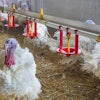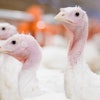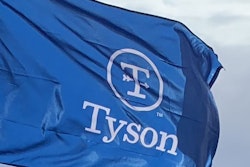The International Poultry Welfare Alliance (IPWA) announces the launch of Key Welfare Indicators (KWI) Guides for broilers, layers and turkeys. The KWI guides provide a practical framework for assessing and improving the welfare of poultry. The indicators are designed to be flexible, allowing companies to tailor their approach to fit specific needs and circumstances.
The KWI Guides were developed in collaboration between poultry companies, academics with a welfare focus, customers and animal welfare organizations to ensure poultry welfare is protected, while also providing consumers with high-quality, sustainable and responsible food choices.
The KWIs are a set of measures selected by a multi-stakeholder group of welfare experts that have a scientifically proven, clear and significant correlation with poultry welfare. The majority of KWIs are outcome-based measures—the best available way to accurately assess the welfare status and impacts on the birds. Areas that lack proven, objective measures at this time (e.g., natural bird behaviors) are not included in the guides now but have the possibility to be included in the future as more research is completed.
“These KWI Guides represent an ambitious, timely and scientifically driven effort to enable better welfare assessment across the whole range of poultry keeping contexts," states Dr. Dorothy McKeegan, senior lecturer in Animal Ethics and Welfare at the University of Glasgow. “They provide a hugely valuable resource for companies wishing to further commit to welfare improvements, and especially to those in world regions where commercial and consumer understanding of animal welfare is still developing”.
The IPWA aims to ensure the KWI Guides are continually updated as our scientific understanding advances. These indicators were determined to have the highest potential for improvement and could hold substantial risk if not monitored effectively. The KWI Guides will be updated as scientific understanding advances as industry, science and technology continue to improve over time.
“I believe the industry will not be content until animal welfare is no longer an issue,” says Ken Opengart, immediate past chair of board of directors for IPWA, DVM, PhD, and vice president of animal welfare and international sustainability for Tyson Foods. “I hear from partners all the time about the need for standard metrics and key indicators to focus on continuous improvement. It is important to create challenging goals for key performance indicators that meet each producer where they are and support continuous improvement.”
The KWI Guides are part of the IPWA's broader mission to promote sustainable and responsible practices. By setting outcomes-based indicators for poultry welfare, the IPWA is helping to ensure that the needs of the animals are met, while also creating a transparent and more sustainable food system.
“The Key Welfare Indicator guides were built to help our stakeholders focus their welfare efforts back on the bird," said Ryan Bennett, executive director of IPWA. “The guides are rooted in proven science and measurements that can be consistently used around the world to let the birds tell us how they are interacting with their environment.”
The IPWA encourages everyone within the poultry community to adopt the KWI Guides and strive for continuous improvement in the welfare of their birds. By working together, we can ensure that poultry welfare remains a top priority and that consumers are confident in the ethical and sustainable practices of the companies they support. View the Key Welfare Indicator Guides here.

















